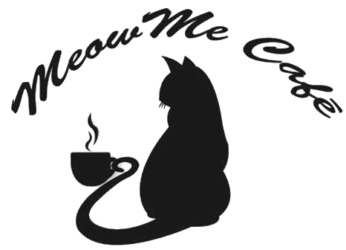Introduction
Evidence-based nursing (EBN) is an significant cornerstone of modern healthcare procedure. It empowers nurses to create informed decisions, deliver state-of-the-art care, and continuously increase patient outcomes. The quest of evidence-based nursing is marked by significant milestones that have shaped the way the medical staff approach their profession. Here, we explore the trend of evidence-based nursing through an annotated bibliography of important milestones, offering valuable remarks into its historical development together with current relevance.
1 . Florence Nightingale’s Statistical Approach (1850s)
Milestone: “Notes on Hospitals” (1859)
Florence Nightingale’s groundbreaking work in nursing placed the foundation for evidence-based exercise. In her book “Notes on Hospitals, ” your woman used statistical analysis to demonstrate how improving sanitation in addition to hygiene reduced mortality charges among patients.
Florence Nightingale’s statistical approach marked the start of using data to inform breastfeeding decisions, https://www.craftberrybush.com/2019/03/free-spring-easter-printables.html”>https://www.craftberrybush.com/2019/03/free-spring-easter-printables.html emphasizing the importance of information in healthcare practice.
minimal payments Cochrane Collaboration and Methodical Reviews (1993)
Milestone: “The Cochrane Collaboration: Preparing, Protecting, and Promoting Access to Orderly, organized Reviews of the Effects of Health problem Interventions” (Mulrow et jordoverflade., 1993)
The establishment from the Cochrane Collaboration revolutionized the best way nursing research is conducted. The following seminal paper introduced the thought of systematic reviews, which contain rigorously analyzing existing study to draw evidence-based data.
The Cochrane Collaboration played out a pivotal role to promote evidence-based nursing by providing some standardized methodology for reviewing and synthesizing research collected information.
3. Evidence-Based Practice with Nursing Education (2000s)
Motorola milestone: “Teaching Evidence-Based Practice throughout Nursing: A Guide for School and Clinical Settings” (Melnyk & Fineout-Overholt, 2005)
Melnyk and Fineout-Overholt’s book tackles the integration of evidence-based exercise into nursing education. This emphasizes the importance of equipping long run nurses with the skills wanted to critically appraise research as well as apply evidence to professional medical decisions.
This milestone streaks the shift toward embedding evidence-based practice within caring for curricula, ensuring that the next generation for nurses is well-prepared to generate the highest quality care.
3. The Magnet Recognition Program (2000)
Milestone: “Magnet Realization Program: The Next Generation of Fineness in Nursing Services” (American Nurses Credentialing Center, 2002)
The Magnet Recognition Application, developed by the American Medical workers Credentialing Center (ANCC), understands healthcare organizations that present excellence in nursing training. This program emphasizes evidence-based caregiving as a key component of getting Magnet status.
The Magnetic Recognition Program has invited healthcare institutions to prioritize evidence-based nursing, resulting in advanced patient outcomes and health professional job satisfaction.
5. Typically the Role of Clinical Train Guidelines (2010s)
Milestone: “Clinical Practice Guidelines We Can Trust” (Graham et al., 2011)
This milestone publication by way of Graham and colleagues includes the development and implementation for clinical practice guidelines. It underscores the importance of trustworthy suggestions that are grounded in demanding evidence.
Clinical practice rules have become instrumental in helping nursing practice, offering evidence-based recommendations for a wide range of clinical scenarios.
Conclusion
The evolution of evidence-based nursing is a testament to the commitment of nurses and healthcare professionals that will delivering the highest quality proper care. From Florence Nightingale’s quick statistical analyses to the business of the Cochrane Collaboration, the combination of evidence-based practice in nursing education, the Magnetic field Recognition Program, and the development of clinical practice guidelines, the field of nursing has spotted remarkable milestones.
These critical milestones have not only metamorphosed nursing practice but have as well improved patient outcomes together with healthcare delivery as a whole. When we move forward, it is essential for nursing staff to continue embracing evidence-based apply, staying updated on the recent research, and advocating for their integration into every aspect of persistent care.
The annotated bibliography provided here serves as a historical roadmap, reminding us all of the progress made along with the critical role that evidence-based nursing plays in nutrition the future of healthcare. By honoring these milestones and re-discovering the joys of the principles of evidence-based process, nurses can continue to provide reliable, effective, and compassionate treatment to their patients.
